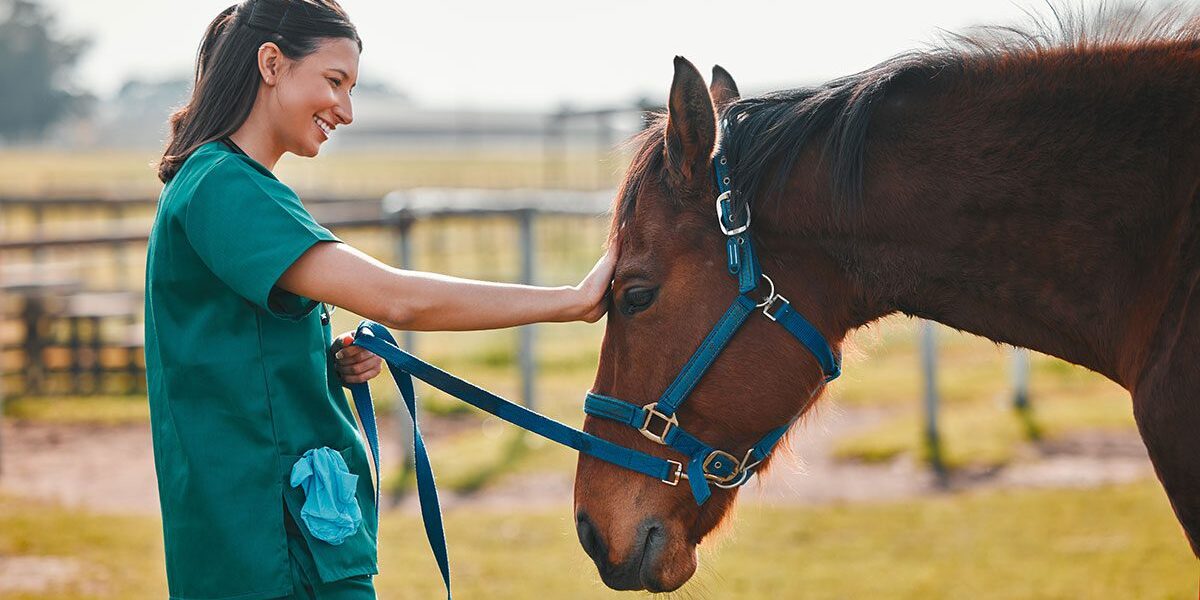
Where Have All the Horse Vets Gone?!
If you’ve tried to find an equine (horse) veterinarian in recent years, you may have noticed it’s not as easy as it used to be. And it’s not just horse vets — there is a growing shortage of large animal and farm animal veterinarians across the country. But equine vets, in particular, are becoming harder and harder to find.
So why is this happening? There are many reasons, and they all add up to a very real challenge for horse owners and the veterinary community alike.
1. It’s Physically Demanding Work
Being a horse vet is not for the faint of heart. Imagine wrestling with 1,000+ pounds of muscle that doesn’t always want to cooperate. From lifting heavy equipment, to holding legs for exams, to standing in awkward positions during dental work — it takes a huge toll on the body. Many horse vets face injuries such as broken fingers, torn shoulders, bad backs, and concussions. Those injuries often force vets to step away from equine medicine sooner than they’d like.
2. Weather Isn’t Always on Your Side
Unlike small animal veterinarians, equine vets don’t have the luxury of a climate-controlled clinic most of the time. Much of their work is done in barns, fields, or driveways. That means freezing hands in January, sweltering heat in July, and plenty of rain, mud, and manure in between.
3. The Cost of Care vs. What Owners Will Pay
Horses are expensive to keep. But when it comes to veterinary care, many owners are surprised at the costs involved in providing quality medicine. Advanced equipment, staff, vehicles, and medications are all expensive — and yet many horse owners are unwilling (or unable) to pay what it truly costs to keep an equine veterinary practice running.
4. Family Life and On-Call Challenges
Equine vets are often on call nights and weekends for emergencies. Colic, foaling issues, or lacerations don’t happen on a convenient schedule. But that means a horse vet might be called out at 3 a.m., leaving behind their own kids at home. For many veterinarians with families, this schedule simply isn’t sustainable long-term.
5. The Training Problem
In “the old days,” most horses were used daily for work or transportation. They were generally well-trained and well-handled. Today, many horses are kept for recreation or companionship — which is wonderful, but it also means some horses are untrained or uncooperative for basic care. Vets are often expected to “train while they treat,” which is both unsafe and frustrating.
6. Finding (and Keeping) Help Is Hard
Just like veterinarians, support staff for large animal work face difficult conditions — long hours, dangerous animals, dirty stalls, and hot or freezing barns. Many people simply don’t want those jobs, and those who do often need higher wages to stay. This drives up the cost of care and circles back to the financial struggle between what it costs to provide equine care versus what owners are willing to pay.
7. Buying the Horse Is Just the Beginning
Too many horse owners assume that purchasing the horse is the big expense. In reality, the ongoing costs of feed, farrier work, veterinary care, and boarding are much higher long-term. When owners don’t budget for regular and emergency veterinary care, both the horse and the veterinarian end up in difficult positions.
8. The Disconnected Owner
In many cases, horses are boarded at stables where the owner isn’t present for farrier work or vet visits. The veterinarian might know the trainer or barn manager but never actually meet the owner. Without that personal connection, trust and communication suffer, which can lead to frustration on both sides.
9. The Driving Factor
Unlike small animal clinics, where patients come to them, equine vets are usually on the road — sometimes spending 50% of their day just driving from farm to farm. That’s a lot of wasted time, gas, and wear-and-tear on vehicles that could otherwise be spent caring for animals.
10. The Rising Bar of Medicine
Equine veterinary medicine keeps advancing — which is wonderful for horses, but it also means more expensive diagnostic machines, treatments, and referrals. Keeping up with modern medicine requires significant investment, which again increases costs for both veterinarians and clients.
11. The Human Factor
Horse vets often face pressure from owners who prefer to take advice from the internet, Facebook groups, or friends at the barn. While it’s natural to do some research, it becomes a problem when misinformation leads to conflict with the veterinarian. Without mutual respect and trust, the relationship breaks down — and that pushes more vets away from equine practice.
12. The Mental and Emotional Toll
On top of the physical challenges, equine veterinarians face an enormous emotional burden.
- In the age of social media, “keyboard warriors” can quickly criticize a veterinarian or clinic after a difficult case, even when the veterinary team did everything possible. Almost always, the vet and their staff gave their best — but not every horse can be saved, and not every client can afford advanced treatment. What remains is often an upset owner whose grief turns to anger, leaving the veterinary team emotionally devastated.
- Veterinarians are trained and wired to “fix” animals. When financial limitations prevent the best diagnostics or treatments, vets are left doing their “best guess,” while owners still expect a perfect outcome.
- End-of-life care is another heavy burden: supporting sobbing families, saying goodbye to beloved horses, and still needing to charge for the service. This emotional labor, compounded by student loan debt and long hours, contributes to the staggering statistic that veterinarians currently have one of the highest suicide rates of any profession.
The emotional toll is real — and it’s one of the biggest reasons many equine vets leave the field earlier than planned.
So… Where Do We Go From Here?
The shortage of horse vets isn’t just a veterinary problem — it’s a community problem. Supporting equine veterinarians means:
- Respecting their time and expertise
- Building a relationship with them before an emergency happens
- Understanding the true costs of horse ownership
- Training and handling horses so they can be treated safely
- Recognizing that veterinarians are human beings too — with limits, families, and feelings
Horse vets love what they do. They love horses, they love medicine, and they want to help. But unless we address these challenges, the shortage will only get worse.
What Horse Owners Can Do
If you own a horse, one of the most important things you can do is establish a relationship with a veterinarian now — before an emergency happens. Schedule routine care, keep your horse’s vaccines and preventive care up to date, and make sure your horse is well-handled so veterinary visits are safe for everyone.
By supporting your veterinarian and valuing their expertise, you help ensure that equine veterinary care remains available for your horse and for your community in the years to come.
